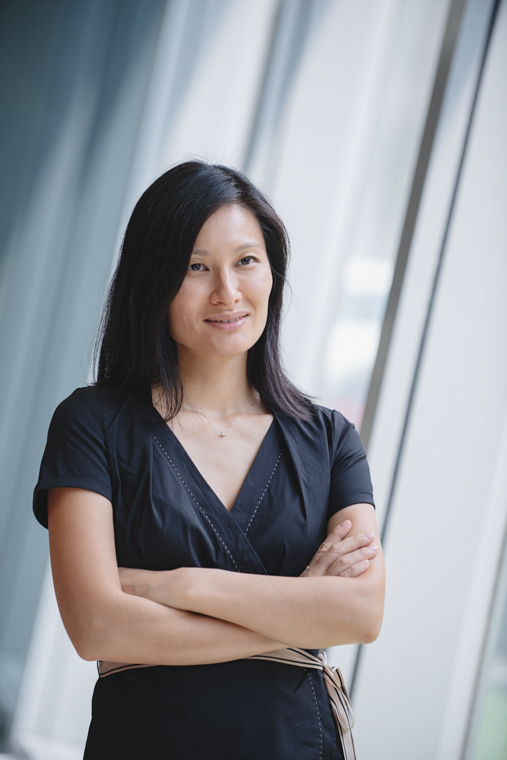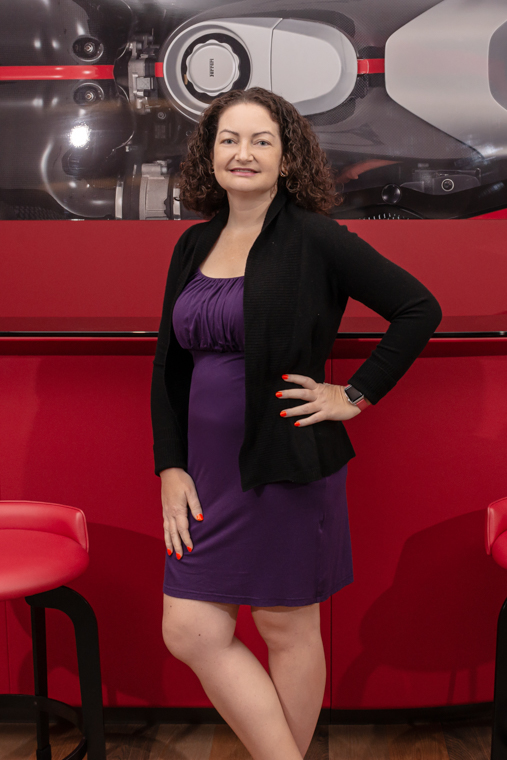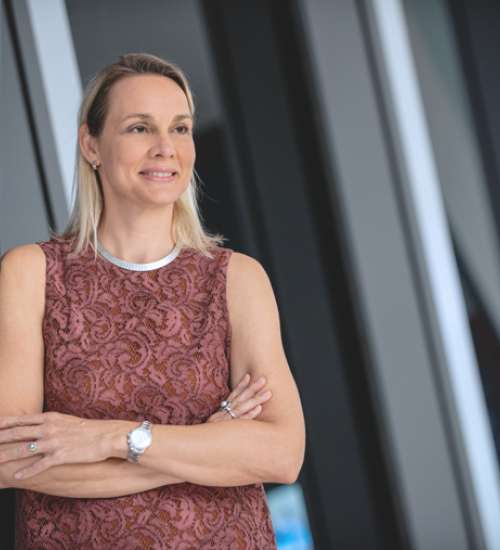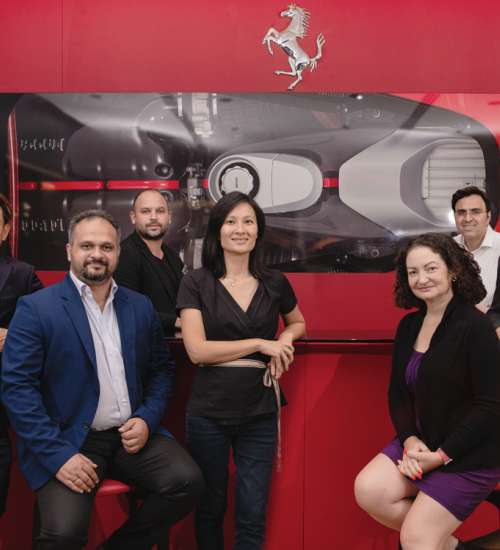 Trina Yeung, CFO, Atome Financial
Trina Yeung, CFO, Atome Financial
Trina Yeung, CFO, Atome Financial; Chair, DIB Programme, Advance Intelligence Group
Covid-19 has disrupted the retail industry due to the fall in foot traffic and shifting consumer behavior. We provided more support to these businesses by helping them set up online sales channels, joint marketing campaigns, and business analytics to help them better understand their customers.
On New Workplace Culture
The pandemic has created an opportunity for us to start important conversations on how we view work, relationship with employers, and the idea of inclusivity. In particular, the younger workforce of today have a very strong sense of purpose and belonging, to whom a job is more than just a paycheck. Diversity and inclusion are crucial in driving talent, creativity and agility. This involves building a culture where employees can co-create spaces of mutual respect and trust. It starts with leaders of organizations who live the culture, embrace differences, and are accepting of changes. Companies that can pivot their business and embrace the new norm in a post-Covid 19 environment will emerge stronger and better prepared for the future.
(Related: Outlook 2022 Part 2)
Dr Sze Tiam Lin, Head, Innovation & Technology, IPI
The pandemic has brought unprecedent disruption in the business world and many enterprises are struggling to cope and survive. The major challenge for me is how to engage and assist enterprises with the mindset to leverage technology and innovation to transform and grow their businesses.
On Tech Development & Adoption
In the area of public health, the pandemic has accelerated the technological development and adoption of rapid test kits, portable PCR, tele-monitoring and tele-medicine to support the recovery process. The pace of digital adoption has never been accelerated to such high degree to deliver medical and healthcare solutions and address supply chain issues for both consumer and business.
 Yvan Maillard, Chief Commercial Officer, The Great Room
Yvan Maillard, Chief Commercial Officer, The Great Room
Yvan Maillard, Chief Commercial Officer, The Great Room
The Great Room has always been about building a strong sense of community and connection between members. Bringing people together like we used to has proven to be a challenge with social distancing, but we’ve done so successfully—thanks to the rich online content that our community is pushing. Our members already share common interests and values.
On the New Workplace
I envision the future workspace to be inspired by the sharing economy. There will be less focus on permanent or conventional long-lease corporate offices in premium real estate. Instead, we can expect more experiential and flexible environments that enable a richer office experience. MNCs, depending on the level of confidentiality that their business requires, might have a core office that equals to 30 to 50 per cent of their total workforce under a conventional office lease while remaining employees utilise flexible workspaces. Human-centric design, workplace wellness and sustainability are the new pillars of success that forward-thinking enterprises will continue to look out for.
 Ian Chapman-Banks, CEO and Co-Founder, SQREEM Technologies
Ian Chapman-Banks, CEO and Co-Founder, SQREEM Technologies
Ian Chapman-Banks, CEO and Co-Founder, SQREEM Technologies
Our business customers experienced fundamental changes throughout COVID-19. We re-engineered our AI-powered platform to provide real-time track and trace abilities for various governments to manage the pandemic. We’re now looking to develop early warning systems for future pandemics.
On New Technologies
The future of deep tech will see artificial intelligence (AI) deployed as a platform as a service (PAAS) across multiple industries, shaping and building the way companies automate processes and improve accuracy in the way they work. Various parts of the healthcare system will be transformed by PAAS into healthtech, for example, in drug discovery, genomic analysis, and even the searching and cataloguing of molecules for the advancement of disease management.
AI and pattern recognition will also be essential in pandemic management, where deep analysis into different data sets will help to provide insights on outbreaks, management and hospital capacity.
For the advertising industry, data-driven automation could see the combination of adtech and martech into one unified platform. Powered by AI, platforms can autonomously run across all marketing functions, allowing marketers to drive efficiency and maximum advantage.
 Jonathan E. Savoir, Co-founder, CEO, Quincus
Jonathan E. Savoir, Co-founder, CEO, Quincus
Jonathan E. Savoir, Co-founder, CEO, Quincus
With the demand for logistics increasing during the pandemic, it is more critical for industry players to scale up, leading to an uptake in supply chain and logistics technology demand. Quincus is scaling up rapidly in terms of both technology and talent.
On Advanced Technology
Advanced technology, especially Artificial Intelligence (AI), will help transform the supply chain industry and optimize business activities in the near future. There is far more data being generated now than ever before, and much of it is difficult for traditional technologies to process.
AI-driven optimization algorithms can process data and draw insights that assist with global optimization for a shipment from Singapore to San Francisco, making the shipments faster and more reliable while saving time and resources.
Further investment in advanced automation and optimization accelerates customers’ response times to changes in demand and supply. Technology must adapt such that businesses can manage their supply chain more effectively without relying on labor or physical space. This is even more meaningful in the current situation where the global supply chain faces a capacity crunch and labor shortage.
 Jacques Bertrand, Executive Vice President, Crestron
Jacques Bertrand, Executive Vice President, Crestron
Jacques Bertrand, Executive Vice President, Crestron
The pandemic has opened up an opportunity to differentiate ourselves from the competition. In difficult times, you can see the strength of your team. We at Crestron have invested in local presence rather than centralized approaches. Our commitment to local customers in all the major cities across Asia has paid off.
On Work Spaces
Work-from-Home has become easy. People open their device or devices, join the call, and start collaborating. Working remotely has raised our expectations of what video conferencing should be, and the meeting room experience should be equal and ideally better.
Meeting rooms and the technology in these spaces should be an extension of our devices. We must be able to walk into these rooms, and it will autonomously turn on, join a call by the simple touch on the device, and know that every participant will have an equal seat at the table.
Despite the challenges of hybrid work, organizations that embrace technology have proven that we can all be productive. With the right technology, there are solutions to create an equitable meeting experience for in-room and remote attendees.
(Related: Outlook 2022 Part 1)
 Chuin Ting Weber, Chief Executive Officer / Chief Investment Officer, MoneyOwl
Chuin Ting Weber, Chief Executive Officer / Chief Investment Officer, MoneyOwl
Chuin Ting Weber, Chief Executive Officer / Chief Investment Officer, MoneyOwl
The inability to have physical adviser-client appointments was a major challenge. We overcame this by switching to using videoconferencing, including real-time document reviews. This was made possible seamlessly because we had already been working on integrating video conferencing tools into our services prior to the pandemic for the convenience of clients.
On Financial Security
This year’s OCBC Financial Wellness Index saw a 6% increase in Singaporeans listing retirement planning as a top priority. At the same time, the pandemic has widened wealth divisions globally; asset prices increased on the back of stimulus support while workers in some sectors suffered.
As a social enterprise, our mission is to help the everyday Singaporean achieve greater financial security through simple, reliable and low-cost financial solutions. With the new hybrid climate, we can use a mixture of human advisers and technology to improve all-round accessibility to financial advisory. We aim to broaden our partnerships to make holistic financial planning more affordable and accessible for everyday Singaporeans.
 Amerson Lin, Co-founder & CEO, Gigacover
Amerson Lin, Co-founder & CEO, Gigacover
Amerson Lin, Co-founder & CEO, Gigacover
Whole industries were disrupted or in survival mode during the pandemic. This saw the needs of our clients evolving drastically, pivoting towards financial security. Working with like-minded partners, we expanded our product offering to include micro-insurance and earnings advances, aimed at boosting stability through earnings protection and access to capital.
On the Gig Economy
The pandemic has widened the gap between pockets of society, with independent workers and small businesses bearing the brunt of the impact. Driven by a concerted effort among businesses to continue operations in line with pandemic restrictions, we are also witnessing rapid digital transformation and adoption levels around technology and skills that have accelerated the viability and popularity of gig work.
Gig workers and freelancers are a large and growing part of our working population. Yet, many do not enjoy the same level of protection and support extended to salaried employees.
We foresee the digitalization of the economy to give rise to opportunities to improve their well-being and inclusivity, such as relooking underwriting criteria and prices for basic insurance as well as eligibility criteria for financing. These can be further enhanced by public sector led efforts and regulation aimed at supporting self-employed individuals.
 Dr Megan McBee, Scientific Director, Singapore-MIT Alliance for Research & Technology Centre (SMART)
Dr Megan McBee, Scientific Director, Singapore-MIT Alliance for Research & Technology Centre (SMART)
Dr Megan McBee, Scientific Director, Singapore-MIT Alliance for Research & Technology Centre (SMART)
From a biomedical research perspective, working from home and with alternating schedules were not the most ideal for advancing biological science projects. However, this enabled us to dramatically improve communication among our research group, as we had to rely on each other’s help with various lab-based tasks.
On the Future of Medicine
Over the past two years, one realisation that individuals and organisations of all industries and governments have had is that biology and medicine underpin almost all aspects of how the world works. With this new understanding, personalisation, taking ‘control’ of one’s health, and preparing for pandemics are the future. Recognising that people want to know about their health, it is important that we apply technology to personalise every aspect of health, from consumer-based to specialised health care (eg, cancer treatments and disease management).
These new advancements will also lead to faster and improved testing for drug-resistant microbes. Having experienced the impact that severe worldwide spread of untreatable microbes can have on the local and global economy, we can foresee greater pandemic response from governments, with new technologies aimed at more efficient testing and a focus on surveillance tools.
 Nicolas Betbeder-Matibet, SVP, Software AG
Nicolas Betbeder-Matibet, SVP, Software AG
Nicolas Betbeder-Matibet, SVP, Software AG
Our success in building truly connected enterprises is reliant on forging deep partnerships and relations with our customers. The pandemic created challenges for collaborative work, necessitating a rethink of operational processes and value propositions which were streamlined to be more specific and simpler to implement in a remote work setting.
On New Technologies
Using technologies to create new - or modifying existing - business processes, culture, and customer experiences is what digital transformation is all about. It’s exciting to see how new digital technologies are being implemented to meet changing business and market requirements. We constantly see our clients reimagine and reinvent their businesses, allowing digital business systems to become increasingly reliant on continuous integration of human and machine intelligence.
Investments in technologies such as Artifical Intelligence, Machine Learning, as well as Data Driven Insights, will contribute significantly to sustainability both from a business as well as environmental survival and continuity perspective. Perhaps even more important than the technology itself will be for organisations to recognise that an essential component of successful digital transformation involves incorporating the right processes to manage newly implemented technology, such as the use of a well-defined Digital Thread and Device Augmentation for business process management.
Shot on location at Ferrari Singapore (Ital Auto Pte Lted)
30 Leng Kee Road, Singapore, 159100






 Trina Yeung, CFO, Atome Financial
Trina Yeung, CFO, Atome Financial
 Yvan Maillard, Chief Commercial Officer, The Great Room
Yvan Maillard, Chief Commercial Officer, The Great Room
 Ian Chapman-Banks, CEO and Co-Founder, SQREEM Technologies
Ian Chapman-Banks, CEO and Co-Founder, SQREEM Technologies
 Jonathan E. Savoir, Co-founder, CEO, Quincus
Jonathan E. Savoir, Co-founder, CEO, Quincus
 Jacques Bertrand, Executive Vice President, Crestron
Jacques Bertrand, Executive Vice President, Crestron
 Chuin Ting Weber, Chief Executive Officer / Chief Investment Officer, MoneyOwl
Chuin Ting Weber, Chief Executive Officer / Chief Investment Officer, MoneyOwl
 Amerson Lin, Co-founder & CEO, Gigacover
Amerson Lin, Co-founder & CEO, Gigacover
 Dr Megan McBee, Scientific Director, Singapore-MIT Alliance for Research & Technology Centre (SMART)
Dr Megan McBee, Scientific Director, Singapore-MIT Alliance for Research & Technology Centre (SMART)
 Nicolas Betbeder-Matibet, SVP, Software AG
Nicolas Betbeder-Matibet, SVP, Software AG




 Back
Back
